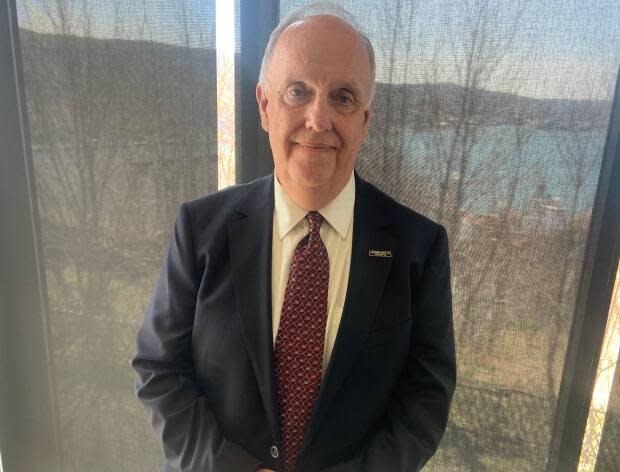Child care, equity, autonomy at forefront of N.L. autism society conference


Amid provincial concerns over child care and inclusive education, attendees and speakers at the Autism Society's second annual conference on Wednesday demanded more resources — and more autonomy — for people with autism.
Last month, advocates told CBC News that dozens of kids with autism were being dismissed from daycares due to a chronic lack of staff, leaving families without child care.
Jules Edwards, one of the keynote speakers at the conference in St. John's, said although she comes from another part of the world — Minnesota — she's familiar with that problem.
"Because I didn't have child care I couldn't work, and because I didn't work I didn't have an income, and because I didn't have an income we had to live in a shelter," she said. "It was a lot of work to dig ourselves out of that."
Edwards, an Anishinaabe autistic advocate and mother of autistic children, said public policy decisions, funding and community support all play a role.
"This is not something that families can solve independently," she said. "It is society's responsibility to make sure that people have the resources they need to survive."
Provincial Education Minister John Haggie has called the dismissals "utterly unacceptable," saying the government is working with daycare operators.
Haggie has also pointed to a new wage grid that means more money for some early childhood educators. Edwards said that higher pay is badly needed.
"Care work is so underappreciated and underfunded, whether it's somebody working in child care or education or even parent caregivers," she said. "It's a systemic problem."
LISTEN: Attendees at the autism society's conference demand more autonomy and support for autistic people
Meghan Ashburn, a mother of autistic kids and the founder of the Not an Autism Mom Facebook page, said in her experience, that systemic problem extends to the medical system.
Ashburn, who lives in Virginia, spoke about frustrations with doctors and problems getting correct diagnoses.
"Autistic children develop on a different timetable. That doesn't mean they don't develop. It just means they need to be given the space and the supports in order to develop on their own schedule," she said.
Doing what's best
Katrina Bajzak, whose 11-year-old son has autism, said listening to Edwards and Ashburn was validating.
"The journey has been hard," she said.
Bajzak said her experience has taught her to slow down and do what's best for her child.
"For me, I was always in a race, and I think at the time it was a race for a diagnosis, and then a race to get the supports, and sometimes you just kind of have to follow the lead of your child," she said.

Paul Walsh, CEO of the Autism Society, said the conference is meant to provide professional development and learning opportunities, but also a place for autistic people to lead the conversation.
"This is the voice of the autistic community. It's not ASNL's voice. It's not some government's voice. It's the autistic community speaking and learning together," he said.
The conference included quiet areas, "silent clapping" and other efforts to make the space more welcoming for people with sensory sensitivities.
Walsh changes are needed to make Newfoundland and Labrador a more equitable place for the autism community — but autistic people need to be at the forefront of those changes.
"Speaking as a disabled person generally — and I know the autistic community feels this way — we're tired of having people with no lived experience tell us what's good for us," he said.

